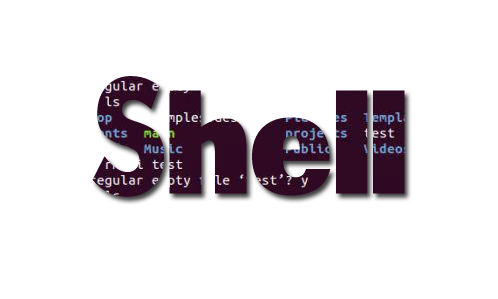
As early as November 2007, in order to systematically learn and summarize Shell programming, the author specially formulated a summary plan of Shell programming paradigms. The plan at that time was:
This series will be oriented to "objects" (that is, the objects we operate), and introduce a large number of examples, which will help us to truly apply what we have learned and increase our interest in the process of using it. Therefore, this series will not specifically introduce Shell syntax, but assumes that readers have a certain foundation in Shell programming.
In addition, this series may eventually cover: numerical values, logical values, strings, files, processes, file systems and other "objects" that we can operate. This operating object will also move from low-level to high-level, and then to the network level. An entire collection of computers connected in various ways. In fact, this is not just exploring the philosophy of UNIX, the huge power contained in KISS (Keep It Simple, Stupid).
——Excerpted from "Landa Open Source Community >> Script Programming >> Shell Programming Example"
At the end of April 2008, most of the content and framework of the entire series were basically completed. Later, due to internship and work reasons, it was not continuously improved. However, the relevant chapters have received a good response, and many enthusiastic netizens have commented and reprinted it. For example, the "Shell Programming Paradigm String Operation" reprinted on Baidu Library has received nearly 3,000 visits. This shows that the entire series still has a relatively large reading group.
Taking into account the vigorous development of the entire Linux world, Shell is used in more and more environments, and the related user groups will continue to increase, so this series has recently been reorganized and released as a free book to benefit more readers.
The entire series has been reorganized using Markdown and published to Taixiao Technology | TinyLab.org. You can directly download the PDF version of all chapters through the Print/PDF plug-in in the upper right corner of each article on TinyLab.org.
The index piece organized into TinyLab.org is: "Index of Shell Programming Examples", and its content structure is as follows:
The beginning of Shell programming example (updated: 2007-07-21)
Numerical Operations in Shell Programming Example (Updated: 2007-11-9)
Shell programming example Boolean operations (updated: 2007-10-30)
Shell Programming Example String Operation (Updated: 2007-11-21)
Shell Programming Example File Operation (Updated: 2007-12-5)
Shell Programming Example File System Operation (Updated: 2007-12-29)
Shell Programming Example Process Operation (Updated: 2008-02-22)
Shell Programming Example Network Operation (Updated: 2008-04-19)
Summary of Shell Programming Examples (Updated: 2008-07-21)
Recently, this series has been compiled into a free book based on a Markdown open source book template and maintained in the TinyLab project repository. Project related information is as follows:
Project homepage: http://www.tinylab.org/pleac-shell/
Code repository: https://github.com/tinyclub/open-shell-book.git
In addition to continuing to update in the form of a blog on Taixiao Technology | TinyLab.org, we also plan to re-plan and supplement the entire series, and continue to maintain it as a free book, and accept feedback from readers through the TinLab.org platform until it is officially released. publishing.
You are welcome to point out the shortcomings in the first draft of this book, and even participate in the writing, revision and improvement of relevant chapters.
If you have time and interest, you are welcome to participate. You can contact us through Taixiao Technology, or directly follow Weibo @ Taixiao Technology and send us a private message.